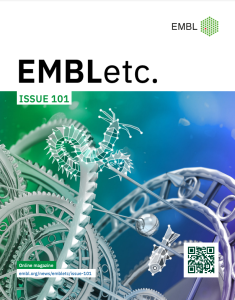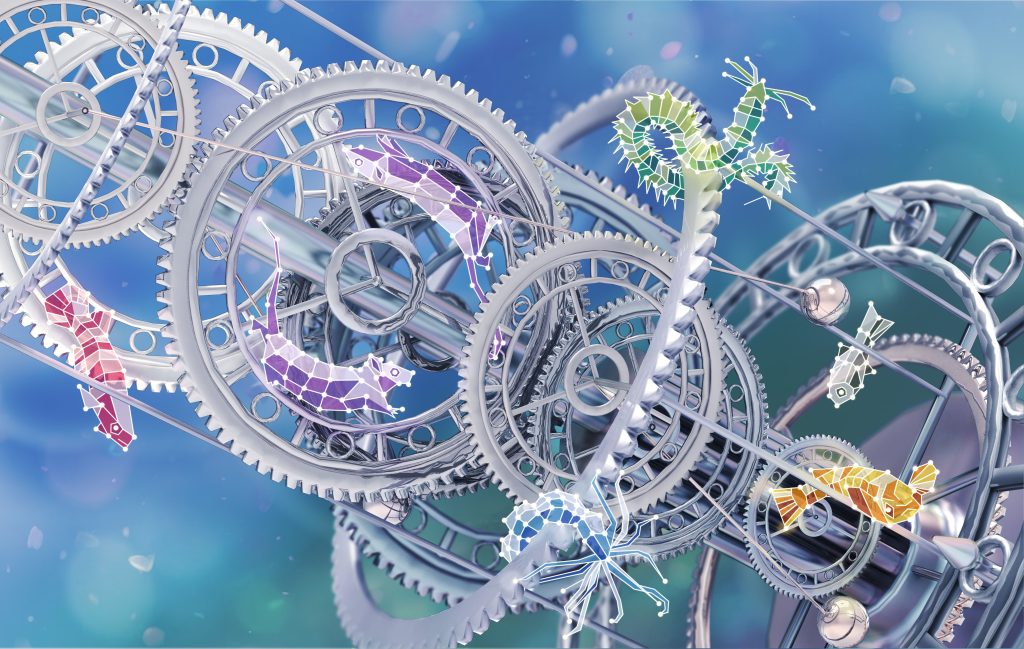7 July 2023
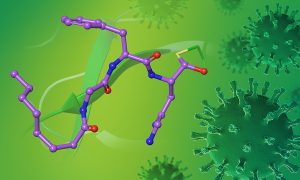
Science & Technology
A collaboration between EMBL Grenoble and EBRIS scientists led to the characterisation of a new compound with promising activity against SARS-CoV-2 variants.
2023
sciencescience-technology
21 October 2021

Science & Technology
The BY-COVID project aims to make infectious disease data, including COVID-19, openly available to everyone.
2021
sciencescience-technology
14 October 2021

Science & Technology
Largest in-depth analysis of genomic data tracks the spread of SARS-CoV-2 lineages in England.
2021
sciencescience-technology
7 October 2021

Science & Technology
EMBL will host a conference to look at the state of the pandemic, lessons learned, and ways to improve pandemic preparedness. Here’s a sneak peek into what promises to be another interesting and informative EMBL conference.
2021
eventsscience-technology
31 May 2021

Science & Technology
The largest in-depth analysis of genomic surveillance data mapping out the dynamics of 62 lineages of the SARS-CoV-2 virus.
2021
sciencescience-technology
17 May 2021

Connections
Leading international experts gathered to showcase progress in the fight against COVID-19 and share lessons for the future.
29 April 2021
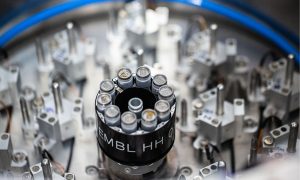
Science & Technology
EMBL Hamburg’s integrated structural biology facility has contributed to the success of a large-scale SARS-CoV-2 study
2021
sciencescience-technology
9 April 2021

Science & Technology
Researchers use large-scale human genetic studies to identify drug targets important for managing COVID-19 in its early stages
2021
sciencescience-technology
22 March 2021

Science & Technology
EMBL alumnus Kai Simons did early work with Semliki Forest virus membranes, which is now central to a COVID-19 vaccine.
2021
alumniscience-technology
11 March 2021

People & Perspectives
EMBL alumnus Pawel Masiewicz has transferred skills and experience gained at EMBL to oversee starting materials for mRNA vaccine development.
2021
alumnipeople-perspectives
3 March 2021

Lab Matters
EMBL invites Simon Gallow, an advocate at UN Women UK, to give a talk marking International Women’s Day.
16 February 2021
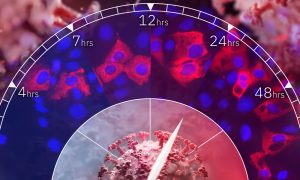
Science & Technology
A team of EMBL scientists and colleagues have analysed how the novel coronavirus affects proteins in human cells. They identified several human proteins as potential drug targets to prevent viral replication.
2021
sciencescience-technology
4 February 2021

EMBL AnnouncementsLab Matters
Open letter galvanises life science community in support of open COVID-19 data
2021
embl-announcementslab-matters
3 February 2021

Science & Technology
A new lineage of coronavirus was first identified in the UK, but why is it spreading much more rapidly within the population?
2021
sciencescience-technology
20 January 2021

Science & Technology
A note on the coronavirus variant B.1.1.7, which has first been described in the U.K. and has spread to 57 countries. The note summarises epidemiological information about the spread of B.1.1.7 in the U.K. collated and in part conducted by researchers from EMBL-EBI.
2021
sciencescience-technology
5 January 2021

People & Perspectives
Understanding why disagreement is good for COVID science. EMBL Deputy Director General Ewan Birney offers tips for sorting through the discourse.
2021
people-perspectivesscience
21 December 2020
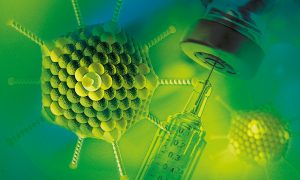
Science & Technology
The story of a life-long friendship and a professional partnership that sowed the seeds for a ground-breaking vaccine technology.
2020
alumniscience-technology
17 December 2020

Connections
December has seen the start of a new chapter in the collaboration that has for years marked the relationship between the European Commission (EC) and EMBL.
1 December 2020
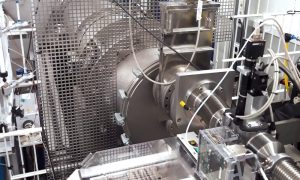
Science & Technology
Biotechnology company BioNTech and Johannes Gutenberg University Mainz conduct collaborative research with EMBL scientists at the beamline P12 in Hamburg
2020
sciencescience-technology
30 November 2020
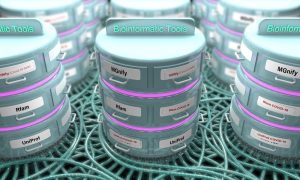
Science & Technology
Bioinformaticians at EMBL-EBI and beyond are adapting computational tools to investigate coronavirus genomes and proteins.
2020
sciencescience-technology
23 November 2020
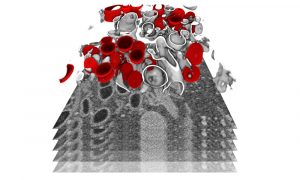
Science & Technology
Researchers have studied SARS-CoV-2 replication in cells and obtained detailed insights into the alterations induced in infected cells. This information is essential to guide the development of urgently needed therapeutic strategies for suppressing viral replication and induced pathology.
2020
sciencescience-technology
4 November 2020
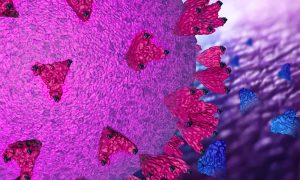
Science & Technology
By screening hundreds of sybodies (synthetic mini-antibodies), scientists have identified one that might stop SARS-CoV-2 from infecting human cells. This work, which holds promise for treating COVID-19, was conducted by EMBL Hamburg and collaborators from the Centre for Structural Systems Biology…
2020
sciencescience-technology
18 August 2020
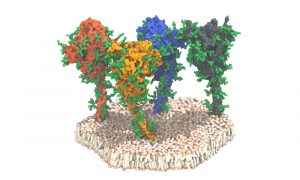
Science & Technology
Researchers studied the spike protein on the surface of the SARS-CoV-2 virus. With its spikes, the virus binds to human cells and infects them. The study gave surprising insights into the spike protein, including an unexpected freedom of movement and a protective coat to hide it from antibodies.
2020
sciencescience-technology
30 July 2020

Science & Technology
Europe PMC has begun indexing full-text COVID-19 preprints along with the associated data. The project aims to accelerate research to fight the SARS-CoV-2 virus.
2020
sciencescience-technology
17 July 2020

Lab Matters
European collaboration receives funding to explore risks and impact of future infectious disease outbreaks.
8 July 2020

Science & Technology
The virtual EMBL Conference ‘SARS-CoV-2: Towards a New Era in Infection Research’ explored the importance of fundamental research, collaboration, and data science in containing the SARS-CoV-2 pandemic, and discussed opportunities to improve our response to pandemics in the future.
2020
eventsscience-technology
29 June 2020
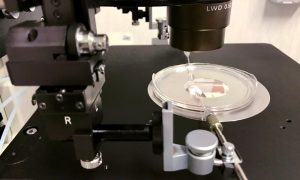
Science & Technology
To study how SARS-CoV-2 infects cells, the Gene Editing and Embryology Facility (GEEF) at EMBL Rome will generate mice that express a human version of a protein called ACE2. The mouse line will be shared with preclinical research collaborators carrying out vaccine and antibody trials, and with the…
2020
sciencescience-technology
29 June 2020
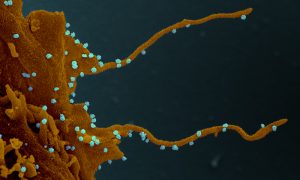
Science & Technology
Researchers evaluate how the new coronavirus rewires human proteins for its own replication, and identify several antiviral drugs ready for clinical trials
2020
sciencescience-technology
25 June 2020
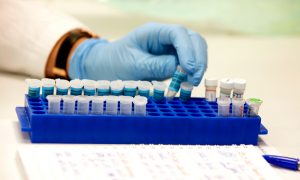
Science & Technology
EMBL scientists develop a new molecular tool to prevent SARS-CoV-2 infection in mice. This tool is able to cause targeted epigenetic modifications of specific genes in specific cell populations. They will use it in mice to target airway cells that express the ACE2 protein – the receptor that…
2020
sciencescience-technology
17 June 2020
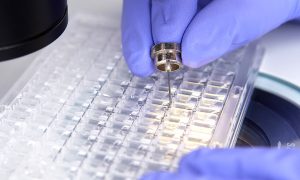
Science & Technology
While global research on coronaviruses has shed light on the function of many SARS-CoV-2 proteins, the role of some crucial components remains unknown. Researchers at EMBL Grenoble will use a range of structural biology methods to try to solve some of the puzzles of the molecular mechanics of…
2020
sciencescience-technology
16 June 2020
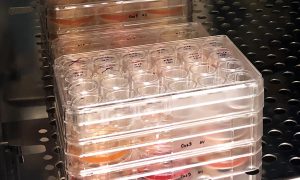
Science & Technology
Scientists at EMBL and Heidelberg University Hospital are studying how the novel coronavirus behaves in the gut to try to better understand its epidemiology and prevent its spread. To do this, they are combining advanced imaging and sequencing technologies to study coronavirus in human intestinal…
2020
sciencescience-technology
15 June 2020

EMBL Announcements
The emergence of previously unknown pathogens, such as the novel coronavirus SARS-CoV-2, raises many questions. To explore these questions in an international scientific forum, EMBL will host the virtual conference ‘SARS-CoV-2: Towards a New Era in Infection Research’ on 3 July. Invited…
2020
embl-announcementsevents
9 June 2020
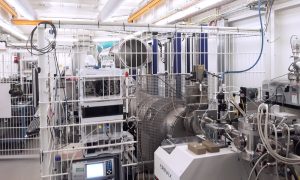
Science & Technology
EMBL researchers are studying COVID-19-related molecules by exposing them to high-brilliance X-ray beams. The Svergun group at EMBL Hamburg is using biological small-angle X-ray scattering (SAXS) as part of a global effort by scientists to elucidate the structural organisation of SARS-CoV-2…
2020
sciencescience-technology
27 May 2020
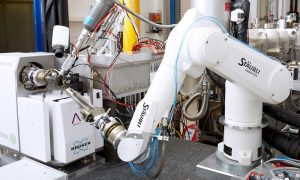
Connections
EMBL and the European Synchrotron Radiation Facility (ESRF) restart the activities of the Joint Structural Biology Group in Grenoble to support coronavirus-related projects. A new initiative will allow users to be granted access to the High-Throughput Crystallisation (HTX) lab at EMBL and to a…
26 May 2020

Science & Technology
EMBL scientists have performed a large-scale analysis of over 4700 SARS-CoV-2 genome sequences. They found that many of the most interesting changes in the SARS-CoV-2 genome that have been reported so far are likely to be technical artefacts, rather than biological mutations.
2020
sciencescience-technology
22 May 2020
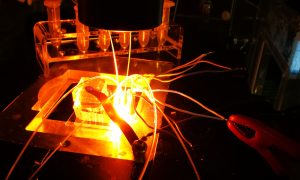
Science & Technology
Scientists hope that a legacy of the novel coronavirus in recovered COVID-19 patients – antibodies in their blood – could lead to drugs to treat others. The Merten group at EMBL Heidelberg has pivoted its microfluidics platform to support the search for neutralising antibodies that could…
2020
sciencescience-technology
13 May 2020

Science & Technology
EMBL scientists will contribute to the new German COVID-19 OMICS Initiative to study the biological mechanisms contributing to coronavirus infections. EMBL group leaders Jan Korbel and Oliver Stegle, who is also affiliated with the DKFZ Heidelberg, will coordinate the set-up of IT infrastructures…
2020
sciencescience-technology
5 May 2020
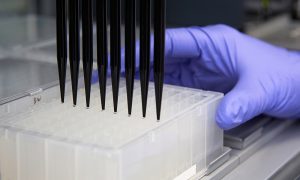
Science & Technology
By re-opening the High-Throughput Crystallisation (HTX) lab at EMBL Grenoble, EMBL is supporting structural biology projects to respond to the health threats posed by coronaviruses.
2020
sciencescience-technology
30 April 2020
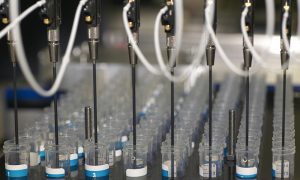
Science & Technology
The Marquez Team has restarted operations at the High-Throughput Crystallisation (HTX) lab at EMBL Grenoble. The team has developed a fully automated protein-to-structure pipeline, which can be operated remotely and provides virtual access to the facilities.
2020
sciencescience-technology
30 April 2020
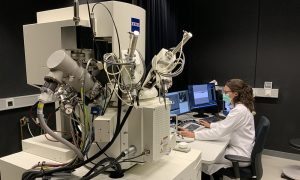
Science & Technology
EMBL electron microscopy specialists collaborate with researchers from Heidelberg University Hospital to understand the changes occurring in cell structures upon SARS-CoV-2 infection.
2020
sciencescience-technology
28 April 2020
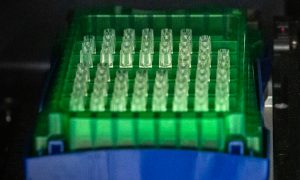
Science & Technology
Scientists at EMBL Hamburg and Karolinska Institutet Stockholm aim to find synthetic antibodies – known as nanobodies – that bind a surface protein of the novel SARS-CoV-2 coronavirus. Nanobodies could prevent the virus from entering human cells and causing COVID-19.
2020
sciencescience-technology
17 April 2020

Connections
EMBL Heidelberg reopens the Cryo-Electron Microscopy Service Platform to support coronavirus structural biology research.
16 April 2020

Science & Technology
Scientists at EMBL Heidelberg are contributing their expertise in a community effort to develop large-scale testing methods for coronavirus. Their goal is to increase the capacity and speed of testing, which is crucial for containing the pandemic.
2020
sciencescience-technology
15 April 2020
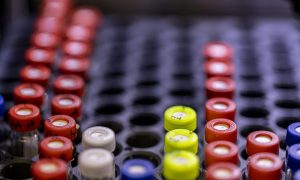
Science & Technology
EMBL researchers are studying how drugs that have shown good results against COVID-19 work in living cells
2020
sciencescience-technology
15 April 2020

Science & Technology
The Protein Expression and Purification Core Facility at EMBL Heidelberg will produce proteins for several coronavirus-related research projects, to assist the development of new strategies to fight the virus.
2020
sciencescience-technology












































